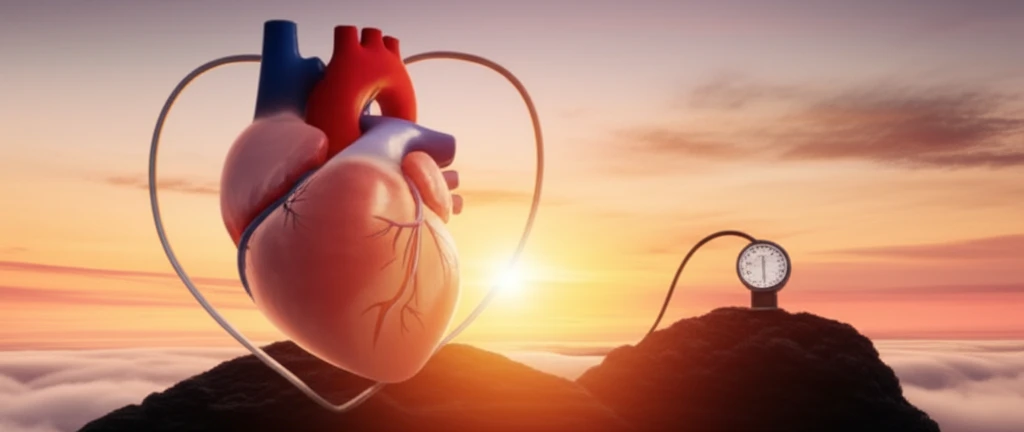
Unlocking the Morning: How Monitoring Your Blood Pressure Can Transform Your Health
"A comprehensive guide to understanding morning blood pressure, its impact on cardiovascular health, and how to manage it effectively."
For years, researchers have been increasingly aware of morning blood pressure (BP) as a key indicator of potential cardiovascular events. Initial studies focused on the body's natural fluctuations, specifically the shift from nighttime sleep to the early morning hours after waking up. This period has come under intense scrutiny because of its connection to serious health outcomes.
A groundbreaking study by Kario et al. revealed that a surge in morning BP could predict the occurrence of both fatal and nonfatal strokes, independent of overall 24-hour systolic blood pressure (SBP) readings. This finding has been largely supported by subsequent research, solidifying the importance of monitoring BP during this critical time of day.
This article aims to provide a clear understanding of the current evidence surrounding morning BP's role in hypertension management. We'll explore the concept of 'masked' morning hypertension, review therapeutic management strategies, and discuss the importance of long-acting antihypertensive drugs. Our goal is to equip you with the knowledge to proactively manage your morning BP and improve your cardiovascular health.
Why Monitor Morning Blood Pressure?

While the link between morning BP and cardiovascular events is well-established, current hypertension guidelines don't universally recommend using ambulatory BP monitoring to assess it. This is due to a few factors, including the complexity of defining a 'morning BP surge' and questions about its incremental value in predicting cardiovascular risk.
- Untreated Patients: Ambulatory BP monitoring can unveil masked morning hypertension, which might otherwise go unnoticed.
- Treated Patients: Monitoring can identify uncontrolled morning hypertension, indicating the need for adjustments in medication or lifestyle.
- Cardiovascular Risk: Regardless of treatment status, elevated morning BP is associated with a higher risk of cardiovascular events.
Taking Control of Your Morning Blood Pressure: A Path to Better Heart Health
Morning blood pressure is a critical factor in preventing cardiovascular events and managing hypertension. While ongoing research continues to refine our understanding, current evidence underscores the importance of monitoring and controlling BP during this vulnerable time of day. By adopting appropriate monitoring techniques, working closely with healthcare providers, and embracing lifestyle adjustments and proper medication management, you can take control of your morning BP and significantly improve your long-term cardiovascular health.
